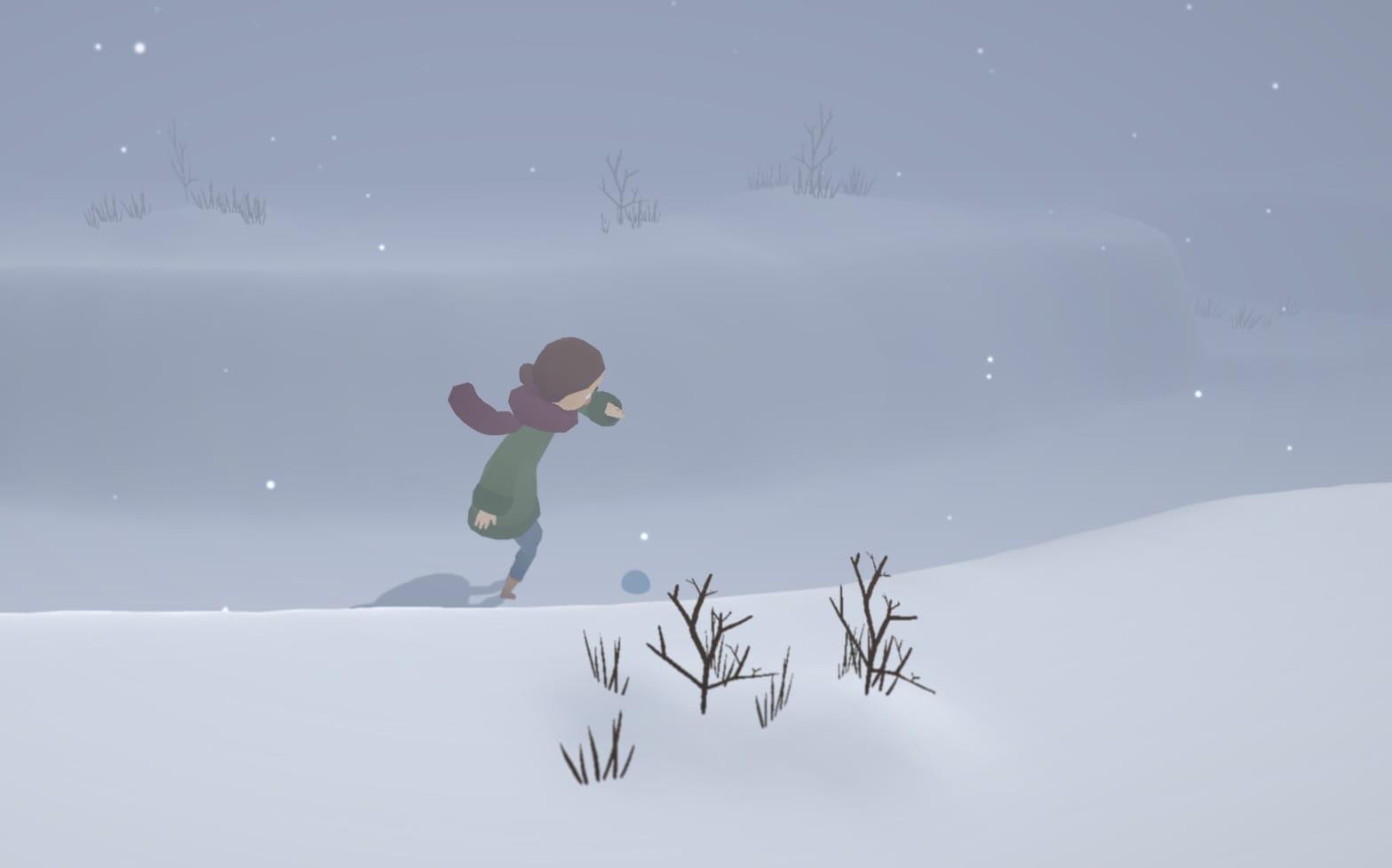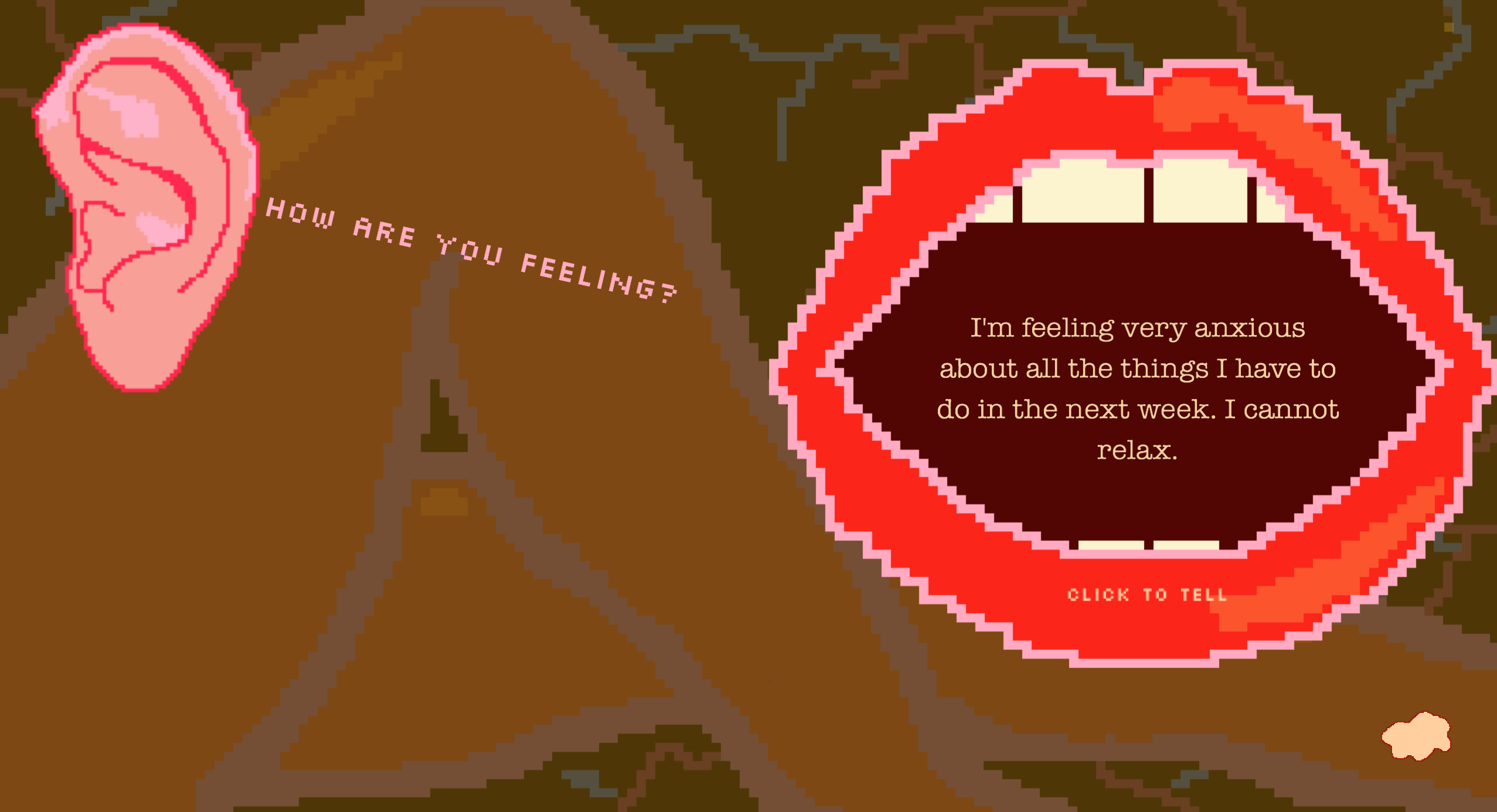In the days following the results of the American election, programmer and game maker Jessica Hayley considered running a “Fuck Trump Game Jam” in order to “channel [her] anger into something that felt productive.” But upon reflection, she realized that the games that would come out of such a move would likely be something she wouldn’t want to contribute to.
“I still wanted to do something, but I didn’t want the outcome to be a bunch of hateful games,” Hayley told me. “So I decided to turn the idea on its head and make a jam where the goal is to create some positivity to counteract the anger, to remind us to take care of ourselves even when terrible, hateful things keep happening.” That’s how she got the idea for the Self-Care Jam, which ran from November 28th to December 5th.
“let’s make stuff that makes us happy”
The Self-Care Jam had a wonderful, refreshing simplicity to it: “let’s make stuff that makes us happy” reads its only rule. Participants were encouraged to create inside whatever format that fulfilled that instruction, whether it was a videogame, a poem, a comic, music, crafts, or anything else. The entries didn’t have to be about self-care, as the jam is meant as a reminder that “the process of creating something can be a form of self–care by itself” according to Hayley, but many of them did turn their attention to the subject of self-care anyway.
Jordan Mallory made the old life EP, which is said to be a collection of “sad songs for hurt people.”Alayna Cole created a Twitter bot under the handle @selfcare_bot that tweets hourly reminders for people to look after themselves. While Bri Rodgers released an interactive poem called this year i’ve been about “being alive and taking care of yourself.” There’s also the game It’s a Beautiful Day by Julie Yllogique, which is about taking care of yourself in the morning before you face the world (I can so identify with having long, hot showers in the morn).

The team led by Lisa Janssens took a slightly different approach to the topic, creating a game called Losing Control, which is about the importance of negative emotions. “I wanted to create this game as a reminder to myself that feeling bad isn’t necessarily a bad thing, that those feelings have importance and that they aren’t permanent,” Janssens wrote.
press a button to lie down when you find a cozy space
The idea of a videogame about self-care isn’t entirely new. Lullaby for Heartsick Spacer (2014) by Merritt Kopas is one of the first I can remember. Inspired by Super Metroid (1994), Kopas described it as “a game for when you feel like you want to crawl into a cave on an alien planet and hide and sleep.” You explore procedurally generated caves and press a button to lie down when you find a cozy space. There are also the games of Kara Stone, many of which focus on self-healing, especially Medication Meditation (2014) and Cyclothymia (2015).

Another big part of this direction that some game makers are moving in is the website Soft Chambers. Started in 2015, it is dedicated to writing about and curating games concerned with care and tenderness. Its list of verbs that are uncommon in videogames and that it is interested in is particularly handy: caring, nurturing, growing, communicating, embracing, giving, resting. A couple of games that have been made in lieu of Soft Chambers include last year’s Minkomora and Orchids to Dusk.
The Self-Care Jam helps to bring more awareness to this side of videogames, where people make games to heal, and don’t need to worry about profits or target markets. “As more ways to get funding in game-agnostic ways (such as Patreon) pop up I can only hope that more and more developers find themselves in a place where they are able to do this consistently,” Hayley said.
You can check out all the entries to the Self-Care Jam on itch.io.





